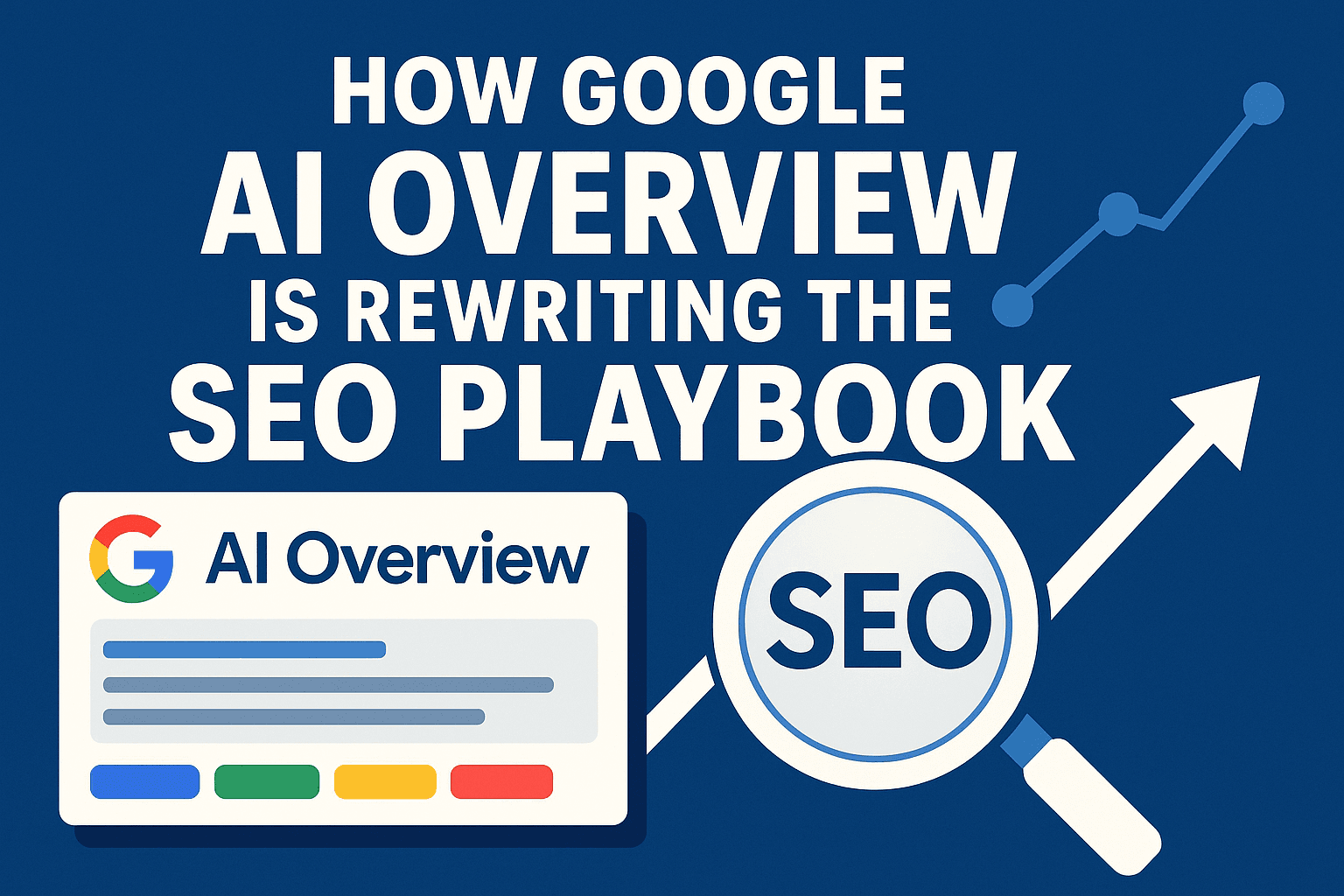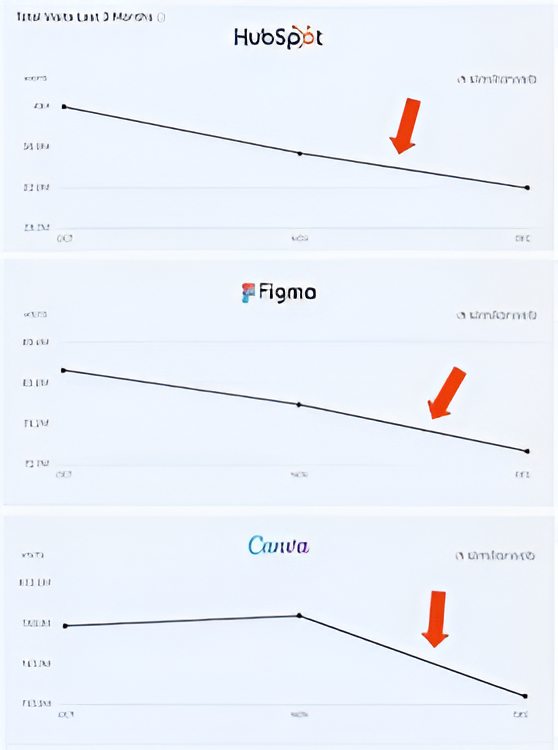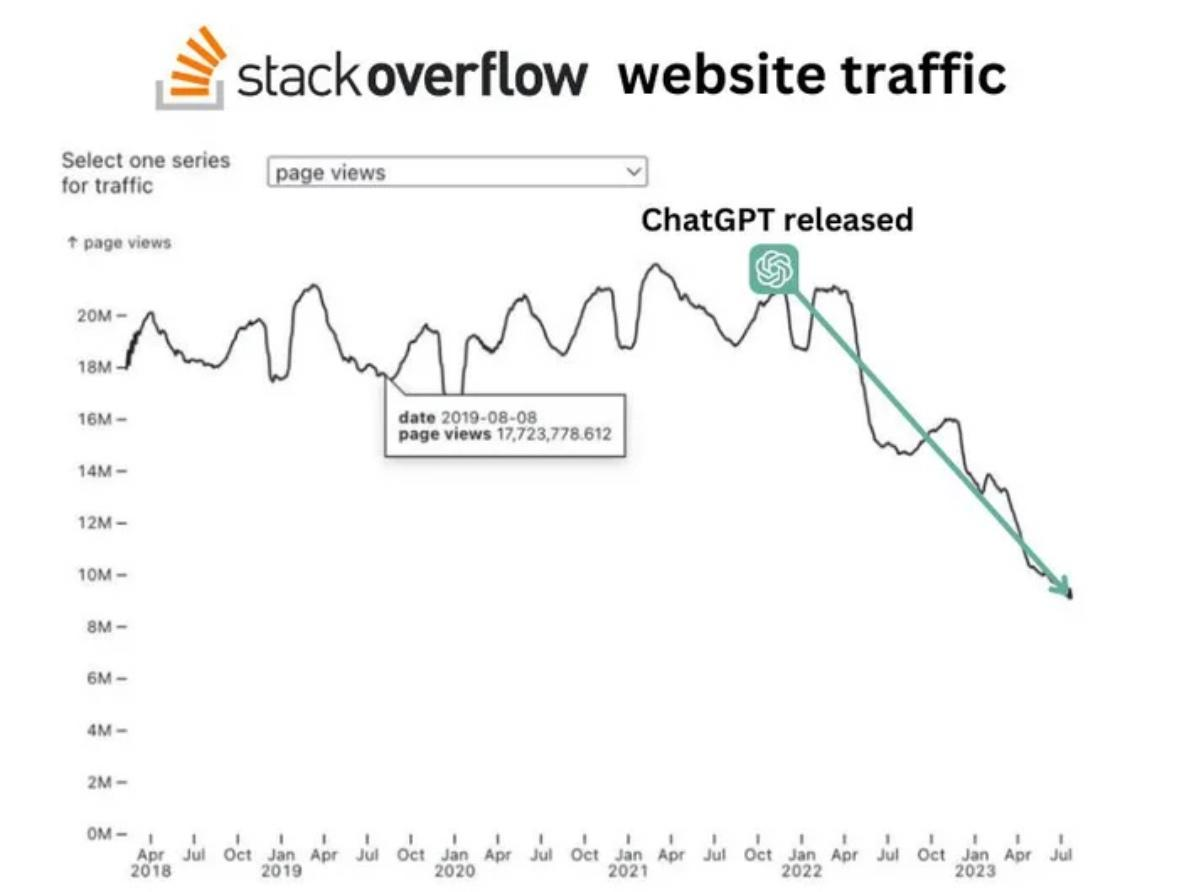How Google AI Overview Is Rewriting the SEO Playbook
HubSpot lost 80% of organic traffic. Figma and Canva are next. Google AI Overview answers questions without clicks. Here's what works now.
Marc-Olivier Bouchard
LLM AI Ranking Strategy Consultant

HubSpot lost 80% of organic traffic. Figma and Canva are trending the same direction.
Google AI Overview answers questions without clicks. Users get answers. Websites get nothing.

The old way vs. the new way
Before: User searches → clicks result → reads article → converts.
Now: User searches → Google shows answer → no click needed.
Generic content is dead. Informational blog posts that answered "what is X?" don't drive traffic anymore.
StackOverflow saw it first
ChatGPT launched in November 2022. StackOverflow traffic dropped 35% in 6 months.
Developers stopped asking questions on forums. They asked ChatGPT instead.

StackOverflow CEO Prashanth Chandrasekar said in an earnings call: "We're exploring ways to adapt."
The pattern is clear. AI answers questions instantly. Websites that relied on those questions lose traffic.
Why old SEO fails
Old SEO: write "What is brand management?" → rank #1 → get clicks.
New reality: Google AI Overview answers "What is brand management?" → zero clicks.
These content types are obsolete:
- "What is brand management?"
- "How to create a sales plan"
- "What is minimum viable data?"
AI answers these in search results. No website visit required.
How HubSpot adapted
HubSpot saw the shift coming. They pivoted before traffic collapsed:
- YouTube shows: Their videos appear in ChatGPT and Perplexity results
- Acquired The Hustle: Built a media brand, not just a lead gen machine
- Creator partnerships: Built reach across multiple channels
- Tripled brand awareness spend: Outpaced most B2B companies
They didn't fight AI. They optimized for AI discoverability.
What works now
AI can't replicate these content types:
- Personal stories: Your unique experience, not generic advice
- Original data: First-party research AI can't access
- Niche expertise: Deep POVs for specific communities
- Human connection: Content that builds relationships, not just answers
Focus on what AI can't do. Not what it can.
The future of SEO
SEO isn't dead. Generic content is.
Winners create content AI can't replicate:
- Genuine expertise from real experience
- Direct audience relationships across platforms
- Content that drives actions, not just answers
- Brand recognition beyond search dependency
Losers keep writing "what is X?" articles.
Is your strategy evolving?
HubSpot adapted. Their traffic declined, but their strategy evolved.
Companies clinging to old SEO approaches will see diminishing returns.
The question isn't whether AI will affect your traffic. It's whether you've adapted to succeed despite it.
Related Articles

A Complete Guide to Improving Your AI SEO Rankings in 2025
Learn effective strategies to boost your visibility in AI search engines and LLMs like ChatGPT, Google Gemini, and Perplexity.
Read more
what strategies improve brand visibility in ai search engines
A practical AI SEO playbook: prompt tracking, citation-ready pages, crawler access, and proof-driven content that AI systems actually cite.
Read more